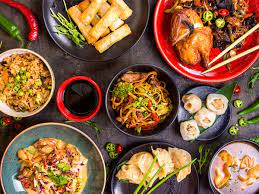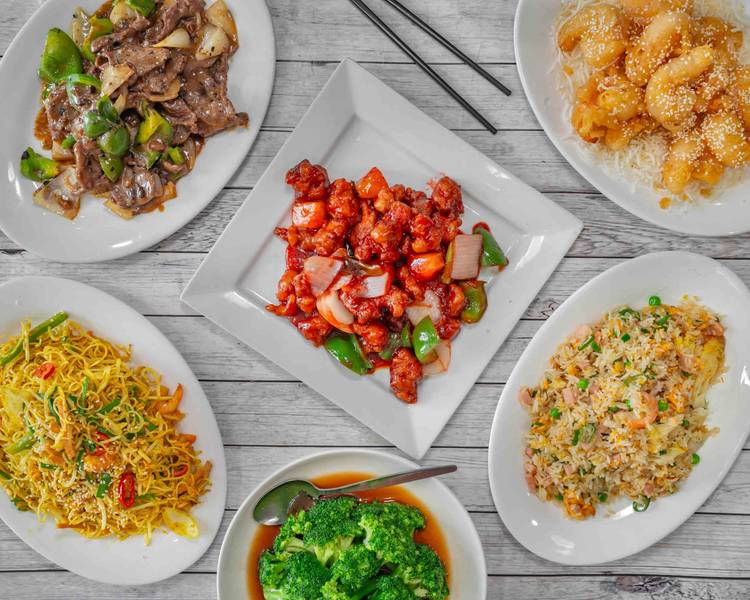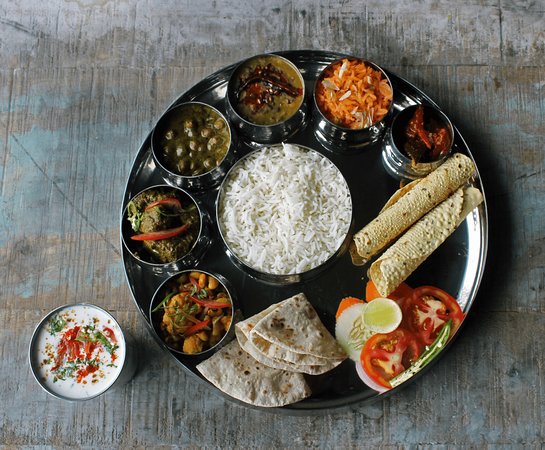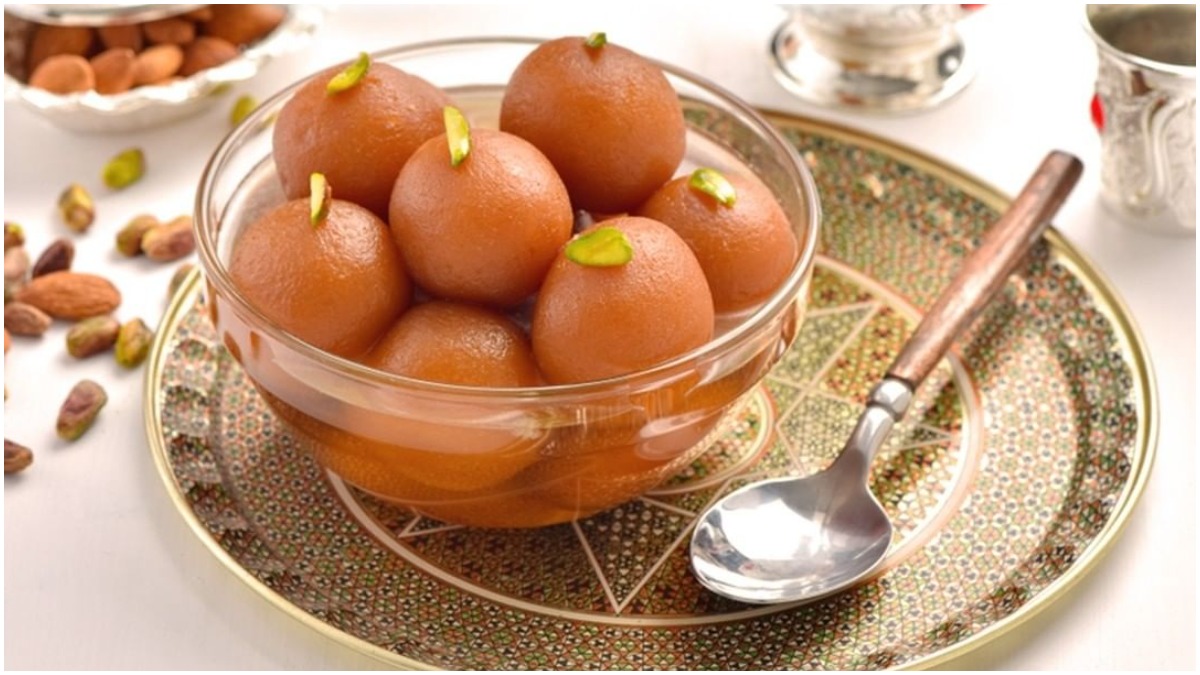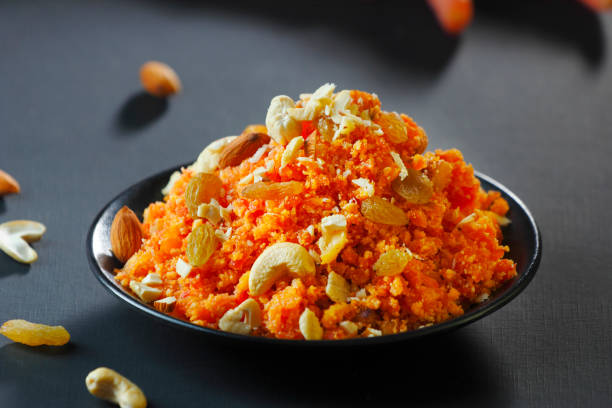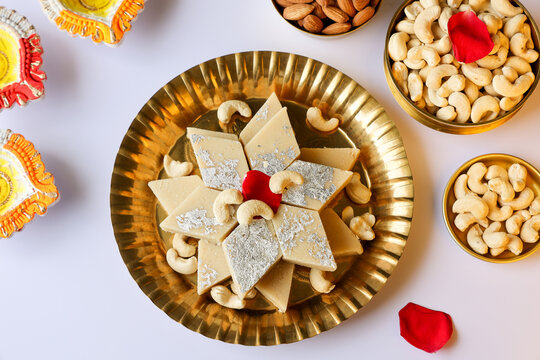Rabdi (Full)
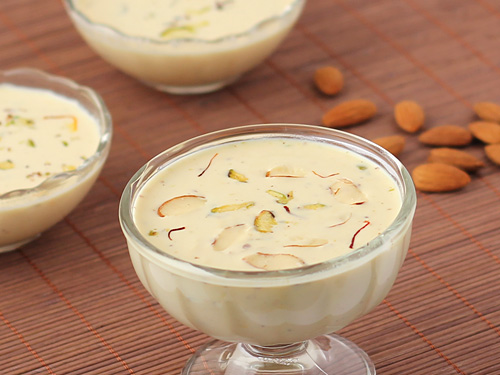



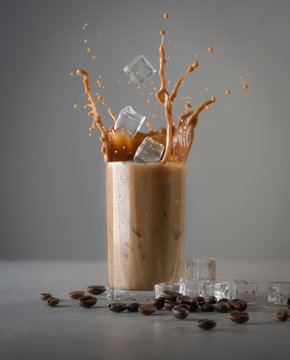
Description
Rabdi, also known as Rabri, is a quintessential Indian dessert cherished for its velvety texture, rich flavor, and irresistible sweetness. This traditional delicacy has deep roots in Indian culinary heritage and is often enjoyed during festive occasions and celebrations.
Origins and Cultural Significance: The origins of Rabdi can be traced back centuries in India, where it emerged as a popular sweet dish in the royal kitchens of princely states. Over time, Rabdi became a beloved dessert across the country, symbolizing warmth, hospitality, and the essence of Indian hospitality.
Ingredients and Preparation: To prepare Rabdi, you'll need:
- Full-fat milk
- Sugar
- Cardamom pods
- Saffron strands
- Almonds and pistachios (for garnish)
The process involves simmering milk on low heat for several hours until it reduces to a thick, creamy consistency. Sugar, cardamom, and saffron are added to enhance the flavor, resulting in a decadent dessert that melts in the mouth.
Crafting the Perfect Rabdi: Achieving the perfect Rabdi requires patience and attention to detail. The slow cooking process allows the milk to gradually thicken and develop a rich, caramelized flavor, while the addition of spices adds depth and complexity to the dessert.
Variations and Serving Suggestions: While the classic Rabdi recipe remains popular, there are several variations and serving suggestions to explore, including:
- Fruit Rabdi: Garnish Rabdi with fresh fruits like mangoes or strawberries for a refreshing twist.
- Dry Fruit Rabdi: Enhance Rabdi with a generous sprinkling of chopped almonds, pistachios, and cashews for added crunch and flavor.
- Rabdi Falooda: Layer Rabdi with vermicelli, rose syrup, and ice cream to create a decadent dessert parfait.
Health Benefits of Rabdi: While Rabdi is undeniably indulgent, it also offers several health benefits when consumed in moderation, including:
- Calcium and Protein: Rabdi is rich in calcium and protein, essential nutrients that support bone health and muscle function.
- Antioxidants: Saffron, a key ingredient in Rabdi, is rich in antioxidants that help protect cells from damage and reduce inflammation.
- Energy Boost: The sugar content in Rabdi provides a quick source of energy, making it a satisfying treat for those in need of a pick-me-up.
Conclusion: Rabdi is more than just a dessert; it's a symbol of tradition, hospitality, and the vibrant flavors of India. Whether enjoyed as a sweet ending to a festive feast or a comforting indulgence on a cozy evening, Rabdi captivates the palate and transports taste buds to a realm of culinary delight.
FAQs (Frequently Asked Questions):
What is the difference between Rabdi and Rabri?
- Rabdi and Rabri are essentially the same dessert, with the terms often used interchangeably depending on regional dialects and preferences.
Can I make Rabdi with low-fat milk?
- While traditional Rabdi is made with full-fat milk for a rich and creamy texture, you can use low-fat milk as a healthier alternative, though the consistency may vary.
How long does it take to make Rabdi?
- Rabdi requires several hours of simmering on low heat to achieve the desired thickness and flavor, so patience is key to crafting the perfect dessert.
Can I make Rabdi in advance?
- Yes, Rabdi can be prepared in advance and stored in the refrigerator for a few days. Simply reheat before serving for the best taste and texture.
Is Rabdi suitable for vegetarians?
- Yes, Rabdi is a vegetarian dessert made from dairy ingredients and plant-based spices, making it suitable for vegetarian diets.
What is the best way to serve Rabdi?
- Rabdi can be served chilled or at room temperature, garnished with chopped nuts, saffron strands, or rose petals for an elegant presentation.
Can I customize the sweetness of Rabdi?
- Yes, you can adjust the amount of sugar in Rabdi according to your taste preferences, making it sweeter or less sweet as desired.
Is Rabdi gluten-free?
- Yes, Rabdi is naturally gluten-free as it does not contain any wheat or gluten-containing ingredients.
Can I use flavored milk to make Rabdi?
- Yes, you can experiment with flavored milk such as rose milk or almond milk to add unique flavors to your Rabdi recipe.
What are some traditional occasions to enjoy Rabdi?
- Rabdi is often enjoyed during festive celebrations such as Diwali, weddings, and religious ceremonies, symbolizing sweetness and abundance.

